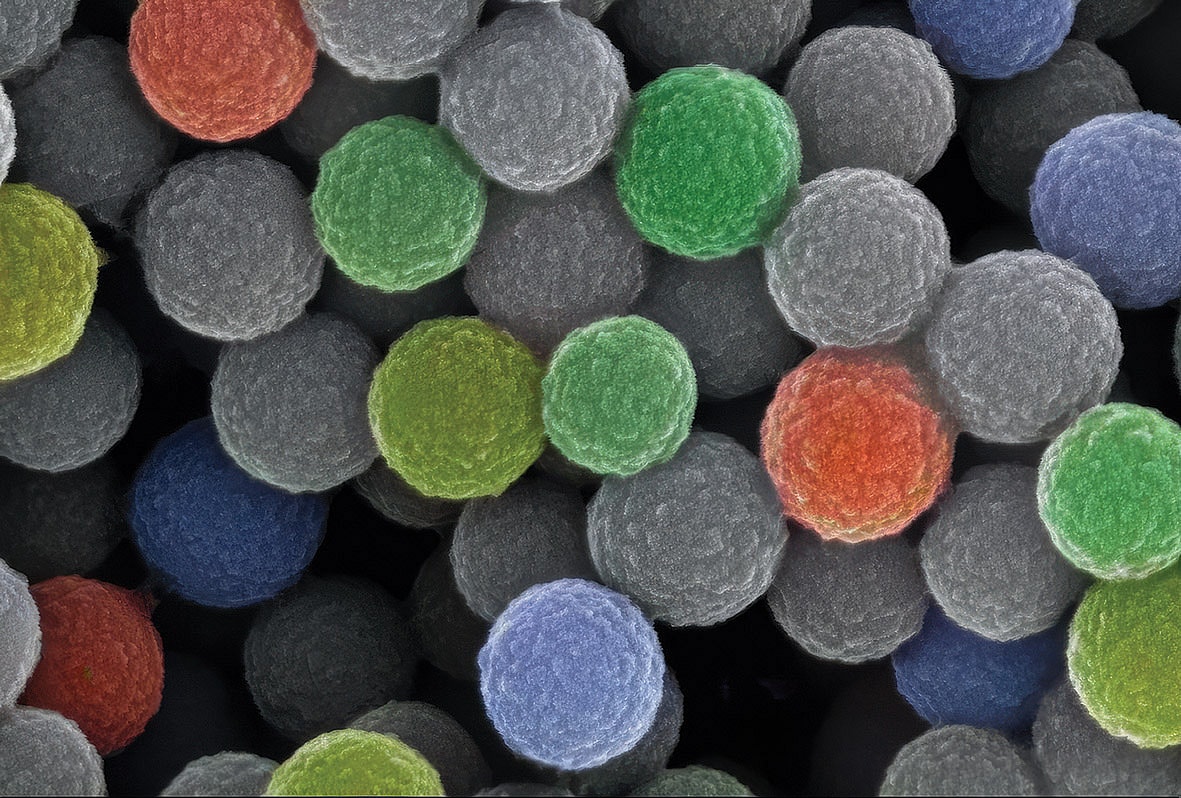- Get directions
- Leave a review
- Claim listing
- Bookmark
- Share
- Report
- prev
- next
- Tuesday, April 23, 2024 @ 11:00 am
Switzerland’s applied research organizations are trusted partners for national and international R&D projects. Collaborators count on our research excellence, high-quality infrastructure, and young talents. Increasingly, their needs and expectations involve sustainable development. As an association of applied research organizations, Biotechnet Switzerland is actively involved in addressing sustainability and working towards global environmental targets.

Laura Suter-Dick
Biotechnet | President

Sonia Thomson
Biotechnet | Communications
Biotechnet’s members conduct specialized research into green technologies such as bioremediation, biocatalysis, and bioenergy, and organize scientific conferences on these topics. We also raise awareness of best practices for durable biotech research, helping our members discover new tools and strategies to improve ways of working in the lab, reduce plastic waste, and limit their carbon footprint. Several research groups affiliated with Biotechnet actively promote the replacement of animal studies, which is arguably an important step towards sustainability in biotech research.
Exemplary projects in sustainable biotechnology
With Swiss and international partners, Biotechnet’s members are developing sustainable diagnostic tests, biomanufacturing processes, biopolymer components, personal care products, and technologies for recycling plastic packaging.
With Swiss and international partners, Biotechnet’s members are developing sustainable diagnostic tests, biomanufacturing processes, biopolymer components, personal care products, and technologies for recycling plastic packaging. Point-of-care diagnostic tests have revolutionized healthcare by providing rapid and convenient results to both healthcare providers and patients. However, it is crucial to address their environmental impact, as most test kits and cartridges are designed for single use, contributing to plastic and electronic waste. In collaboration with international and national partners, CSEM is pioneering durable technologies for in vitro diagnostic tests and dedicated electronics. Eco-friendly batteries, wireless power management and compostable and biodegradable material will reduce the carbon footprint of IVD tests. CSEM is also developing cutting-edge green biochemical sensors to offer unparalleled sensitivity and specificity for body fluid monitoring, bringing new possibilities for more sustainable point-of-care diagnostics tools and personalized medicine. These innovations are being developed within the industry-driven EU projects EECONE and SUSTRONIC.

Biopharmaceuticals are a cornerstone of biotech and pharma but the highly complex production processes pose a burden to the environment. Thomas Villiger at the School of Life Sciences (FHNW) is collaborating with Vienna University of Technology, the University of Chemistry and Technology, Prague, and Merck Serono SA to increase sustainability in biomanufacturing. Together, they developed a bleed recycling technology that allows cell culture medium to be reused while increasing yield in perfusion processes by 20%. Increasing yields remains the most effective way to reduce the material and energy required in biopharmaceutical production.
Enzymes as biocatalysts have a lower environmental impact than chemical catalysts and can support the development of more sustainable processes. The team around Rebecca Buller at the ZHAW has made major progress in identifying biocatalytic processes. They recently published exciting data on the synthesis of anthocyanins, a plant pigment with several uses in the cosmetic and food industry. Also, scientists from the FHNW are involved in several European projects focused on using enzymes to improve sustainability. In FuturEnzyme, the Shahgaldian and Corvini groups at the FHNW are applying enzyme supramolecular engineering to lipases and esterases to make them suitable for manufacturing processes in laundry, personal care, and textile products.
In the area of biopolymers, HES-SO successfully completed the SNSF project BIOPLATE with Chulalongkorn University, Bangkok and the Fraunhofer Institute for Manufacturing Engineering and Automation/Electroplating, Stuttgart. Manfred Zinn’s team at HES-SO Valais converted syngas into bacterial biomass and the biopolymer poly(3-hydroxybutyrate) (PHB), a 3D-printable material suitable for electroless metal plating.

The finished parts are used in the automotive industry for dials, knobs, and other components. The project provides an excellent alternative to the more toxic metal coating of petrol-based polymers.
In addition to improving production processes, it is also key to address waste generation, degradation and recycling. FHNW is participating in the EU Terminus project aimed at improving plastic packaging recycling. The Corvini group is working on an embedded enzyme that helps delaminate multilayer packaging so that its individual components can be recycled, addressing a major global issue.
Innovative contributions from research organizations within Biotechnet are enabling more sustainable biotechnology to support the Swiss and international economy while considering the health of our planet.
Thematic platform-driven networking fostering synergies inside and outside of Biotechnet
Next to technological progress, networking and scientific exchanges are key to the promotion of the change of mindset required for the implementation of more sustainable approaches. Biotechnet hosted five events in 2023-2024 that featured a strong emphasis on sustainability.
Three thematic platforms organized specialized scientific conferences, bringing together national and international participants:
- Biocatalysis uses enzymes to perform chemical transformations on organic compounds. It’s a practical and environmentally friendly alternative to chemical synthesis. The 4th annual CCBIO Symposium held at the ZHAW focused on this technology.
- Bioremediation relies on natural processes and microorganisms to remove contaminants without causing harm to delicate ecosystems. The 3rd edition of Bioremid held at the FHNW brought together European stakeholders around this topic.
- Sustainable use of antibiotics remains a challenge, especially in low- and middle-income countries. The Indo-Swiss Antimicrobial Resistance Innovation Dialogue brought experts from India and Switzerland together to tackle this challenge.
Undoubtedly, education plays a key role in sustainable solutions for the future. Biotechnet organizes an annual summer school and an annual meet-up, which provide a broader forum for networking and exploring key topics identified each year.
- The XVII Summer School on Advanced Biotechnology in Palermo featured four sessions dedicated to biotechnology advances in food, green energy, and the environment.
- The Biotechnet Meet-Up was held in January 2024 on the topic of Sustainability in Biotech, providing participants with concrete suggestions to improve their lab practices.
Conclusion
It is clear that sustainability is and will remain a relevant topic that will influence our everyday lives and affect technological developments and the economy. In this context, biotechnology plays a double role, as it can profit from optimized, novel methodologies and processes to become more sustainable and can also deliver means to achieve sustainable solutions to specific problems. Applied research organizations can be good partners for industry when developing sustainable solutions (see scienceindustries article, page 34) and Biotechnet members support companies in devising optimized processes and protocols for manufacturing and research, as well as in finding biotechnological solutions for issues such as recycling. However, there is still a long way to go and much to be done to achieve a more sustainable biotechnology. So, how do we help you biotech in a sustainable manner?